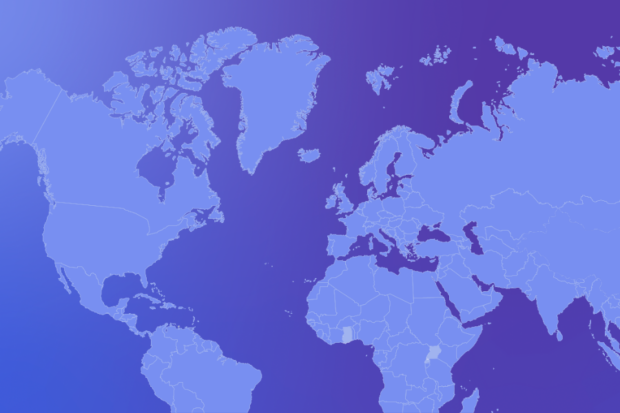In recent years, the African Union has taken important steps in coalescing national governments around social and economic development, fueled by data, digital technology, and effective governance. While key blueprints like the African Union Digital Transformation Strategy and Data Policy Framework, as well as the Continental AI Strategy, are the first step in realizing this vision, collective action is needed across regions, countries, and sectors. As leaders across the continent work to advance a stronger, more unified digital Africa, collaboration will be essential to their efforts.
The Africa Data Leadership Initiative (ADLI), a leading peer-to-peer learning network focused on data governance, is a prime example of this power. ADLI participants are selected in cohorts that cover three to four countries at a time, with representatives of public, private, and non-profit entities that are critical to the country’s data governance conversation. The participants get access to a series of discussions that enhance cross-sector knowledge sharing; to trusted mentors and advisors; and to a bespoke curriculum of African thought leadership.
By bringing together these diverse stakeholders, ADLI is harnessing their expertise to foster mutual learning and advance a shared understanding of data governance frameworks that are inclusive and responsive to the needs of the African people. And, in the coming years, ADLI can serve as a strategic catalyst, both for dialogue and concerted action, helping drive the development of data governance frameworks that meet the diverse needs of populations across countries and borders.
Collaboration is the key to realizing the African Union's vision of an integrated, inclusive digital society and economy.
As governments throughout Africa work to promote a positive data future, ADLI is uniquely positioned to act as a critical community builder. In particular, ADLI can support and complement the continent’s evolving digital and data ecosystem in three critical ways:
1. ADLI strengthens efforts to accelerate regional and continental integration.
In Africa, there are many efforts underway to promote better collaboration between countries at a regional and continental level, like the African Continental Free Trade Agreement (AfCFTA), which aims to foster economic integration and create a single digital market across the continent. This mammoth task includes efforts by several continental and regional institutions, such as AUDA-NEPAD and the Regional Economic Communities (RECs), which are supported by our ADLI partner organizations, Smart Africa and UNECA.
Cross-border data sharing is key to meeting the aspirations of these efforts, whether regional or continental. Yet, defining a unified approach to trusted data sharing across countries with different political systems, regulations, and technical capabilities is no easy task. There are many entities with different incentives and agendas that all need space to come together and align efforts towards a common goal. Thus, dialogue and knowledge sharing is critical to establishing trust and laying the groundwork for establishing data sharing protocols and infrastructure that work for multiple countries.
As a driver of strategic partnerships, ADLI can play a vital role in furthering these efforts. ADLI provides a channel for regional and cross-border entities to engage directly with each other, and with ADLI participants, who are national-level actors working on each country’s data governance.
One way that ADLI can support these efforts is by curating the learning agenda based on key themes in the Africa Union’s Data Policy Framework: foundational data infrastructure, trust in data systems, data value creation, and integrated national data systems. In doing so, the participants increase their familiarity with the objectives of this framework and discuss their common challenges, resource constraints, and barriers to implementation of the framework. Being leaders in their local data economies, they were also able to demonstrate the strides that they have made in establishing best practices and the value that they are creating from data. These discussions, particularly when they happen over time and at scale, will be critical to foster and implement regional and continental approaches to data governance.
2. ADLI fosters knowledge sharing between countries.
African governments play a pivotal role in shaping robust data governance frameworks that balance market enablement with principles of fairness, inclusion, and data justice, addressing the interests of diverse stakeholders in data generation and use. However, enforcement challenges persist, with gaps between policy and practice posing obstacles.
By guiding participants from these different countries through a collaborative learning journey, ADLI not only fosters new partnerships between diverse stakeholders across the governance and policy spectrum but also strengthens existing ones. And, with many African countries often facing common challenges, resource constraints, and barriers to implementation, ADLI offers a means of innovative, collective problem solving to help overcome key issues and showcases successful use cases for shared inspiration.
The 2024 ADLI country cohort brought together over thirty data and policy experts from Uganda, Sierra Leone, The Gambia, and Zambia. Like many of their peers across the continent, these countries are at varying degrees of digital readiness and are faced with charting their own paths towards their vision for digital development. Exposure to the different models of data governance across the globe, including market-driven, state-led, and rights-based, is imperative as African countries determine their own approach. By bringing them together into one conversation, the participants were able to reflect on the pressing need for harmonization across African countries and ways to achieve this despite the vastly different starting points.
3. ADLI facilitates essential cross-sector partnerships.
Data governance is not the purview of the government alone. To establish and maintain data governance in a country, and to ensure that data continually drives value for people, the private sector, civil society, and academia must all play a role. The public sector has a critical role to play in establishing governance frameworks that promote people-first data practices, protect against abuses and cybersecurity breaches, and establish the basis for secure data sharing that allows for innovation. The private sector, on the other hand, has a role to play in ensuring that standards allow them to build services on top of digital public infrastructure, and often brings critical knowledge of good practices for data sharing and security.
Civil society and academia, meanwhile, are often left out of these conversations entirely, even though they are often the closest to people and communities that are benefiting from data sharing – or being harmed when data governance practices are not effectively designed or implemented. Hence, bringing together these different sectors into one conversation can ensure that their expertise is leveraged, and their needs are addressed.
ADLI facilitates this kind of multi-stakeholder engagement and builds strategic partnerships to foster trust and consensus around data governance. For the 2024 ADLI country cohort, each country’s participation was composed of 12-15 representatives from government, civil society, academia, and the private sector. These representatives collaborated to address challenges through shared learning and innovative solutions from digital rights advocates, startups, and research communities, enabling joint problem-solving in the digital realm.
For example, organizations such as CIPESA, the Centre for the Study of the Economies of Africa (CSEA), Toro Dev, Pollicy, and the African Economic Research Consortium (AERC) are some who were invited to share expertise on topics such as Data Justice, Afro-feminist data futures and research related to recommendations for the institutional endowments required for effective data governance. ADLI has been able to function as a vehicle for these knowledge products and insights to reach decision-makers and practitioners. Access to cutting edge research – developed within the African context – is shared with all participants through a dedicated Resource Hub, so that decision-makers can engage with publications that are locally contextualized. As an extra measure, an Expert Directory was also established to help participants and other stakeholders locate local leaders and experts within cohort countries.
A unified understanding – and concerted action – are needed to promote effective data governance. ADLI can help foster both.
Effective data governance in Africa demands bold, collaborative action. Through its 2024 country cohort, ADLI has laid the groundwork for this network of policymakers, innovators, and changemakers to drive transformative policies, build resilient data ecosystems, and ensure digital transformation serves every African.
As leaders across the region work to realize the African Union’s Data Policy Framework, this type of collaborative, targeted knowledge-sharing will only continue to grow in importance. In 2025, we will continue to leverage the ADLI community to harness collective expertise, confront challenges head-on, and help lead Africa into a future where data empowers communities, fuels innovation, and drives equitable growth.






